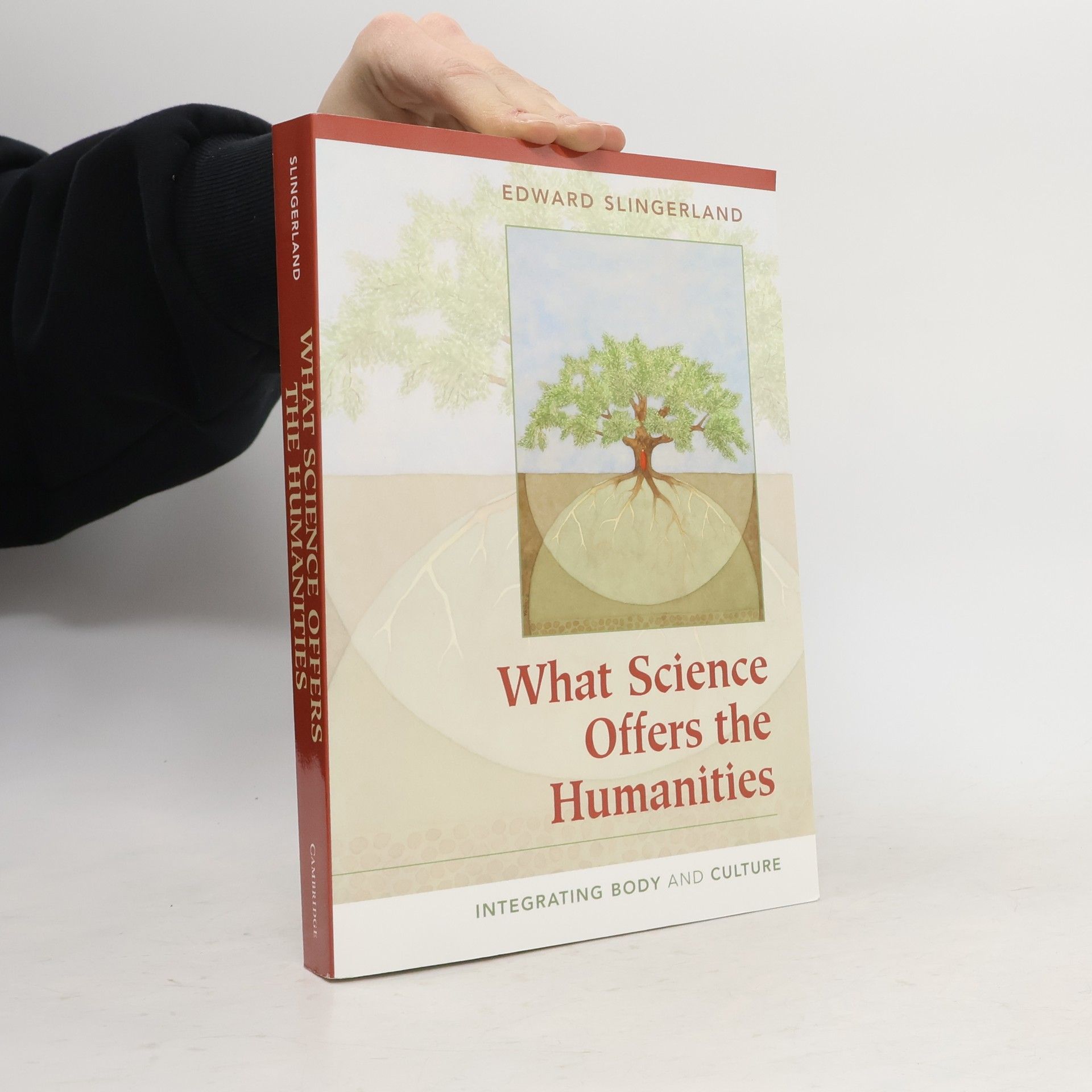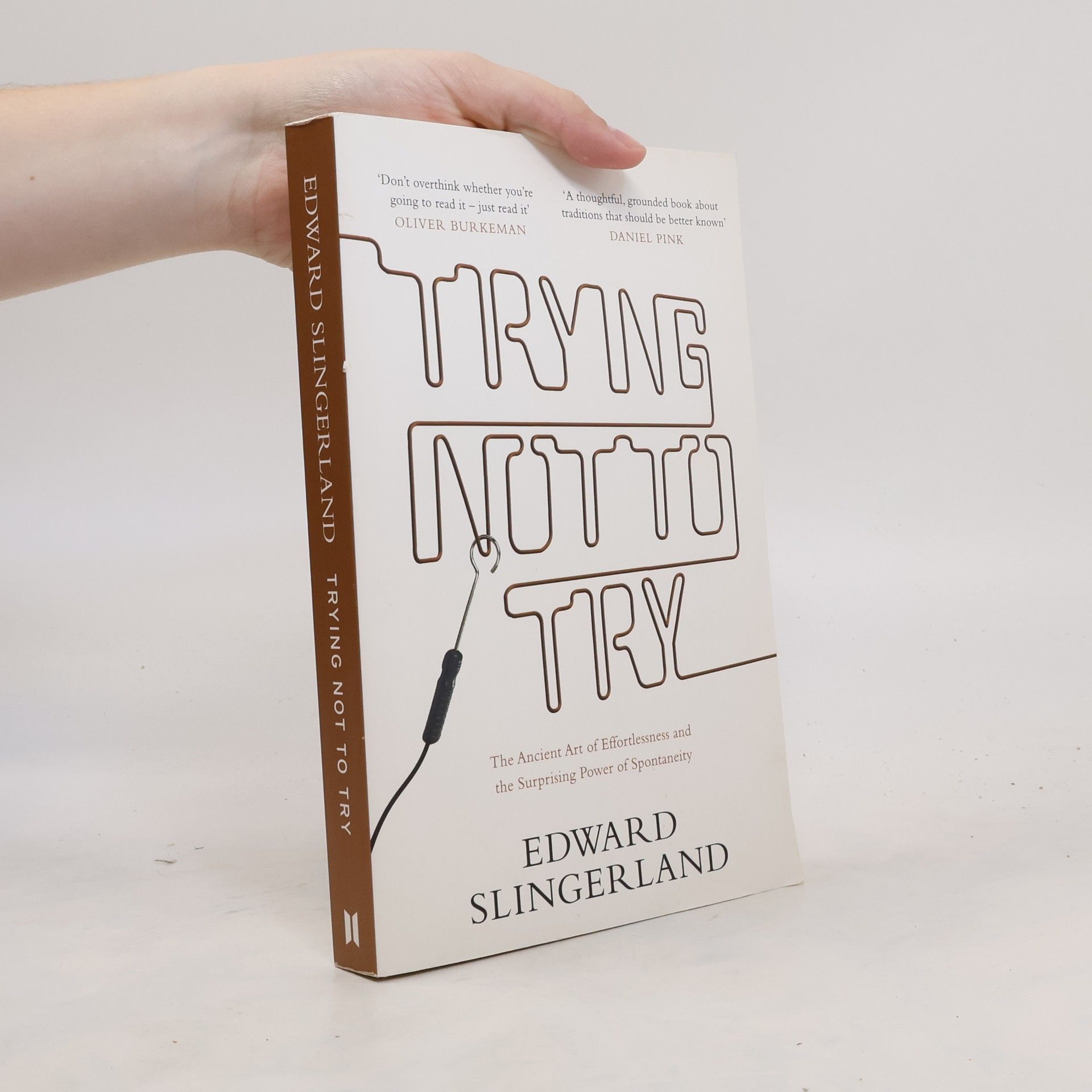Jeder kennt es: Je angestrengter wir versuchen einzuschlafen, desto wacher werden wir. Je verzweifelter wir nach einem Partner suchen, desto weniger fruchten unsere Bemühungen. Erst wenn wir nichts mehr erzwingen wollen, sondern gelassen und spontan an die Dinge herangehen, geschehen sie plötzlich wie von selbst. Der Sinologe und Kognitionswissenschaftler Edward Slingerland hat dieses Paradoxon untersucht und ist zu beeindruckenden Ergebnissen gelangt: Das Geheimnis von Erfolg, Glück und Gelassenheit liegt tatsächlich in einem ganz bestimmten mentalen Zustand der inneren Ruhe. Dieser hat viele Namen: Wo heute oft von Intuition oder Flow die Rede ist, spricht die taoistische Philosophie von Wu Wei – dem mühelosen oder absoluten Handeln. Fern von Mystik oder Esoterik erläutert Slingerland die ideengeschichtlichen Grundlagen dieses Konzepts, zeigt, warum diese Lebenseinstellung so erstrebenswert ist und wie man sie erlangt. Das Wu-Wei-Prinzip ist eine faszinierende Synthese aus fernöstlicher Philosophie und westlicher Wissenschaft – ein kluges und gelehrtes Buch, das den Weg weist in ein ausgeglicheneres, erfüllteres und zugleich entspannteres Leben.
Edward G. Slingerland Bücher
Dieser Autor befasst sich mit frühem chinesischem Denken, vergleichender Religionswissenschaft und Ethik durch die Brille der Kognitionswissenschaft. Seine Arbeit konzentriert sich auf die Integration von Geistes- und Naturwissenschaften und untersucht, wie unsere kognitiven Prozesse unser Verständnis von Tugend und Handeln prägen. Leser können intellektuell anregende Texte erwarten, die alte Weisheiten mit modernen wissenschaftlichen Erkenntnissen verbinden. Der Ansatz des Autors bietet eine einzigartige Perspektive auf menschliches Verhalten und ethische Entscheidungsfindung.





Trying Not to Try
The Ancient Art of Effortlessness and the Surprising Power of Spontaneity
- 295 Seiten
- 11 Lesestunden
A deeply original exploration of the power of spontaneity - and why it's essential to our wellbeing, both as individuals and as a society.
Exploring the alcohol-soaked origins of civilization, this book delves into humanity's evolutionary desire for intoxication. It offers an entertaining and enlightening examination of how these historical and cultural aspects have shaped societies. Through a blend of history and anthropology, the narrative reveals the significant role alcohol has played in human development and social interactions.
What Science Offers the Humanities examines some of the deep problems facing current approaches to the study of culture. It focuses especially on the excesses of postmodernism, but also acknowledges serious problems with postmodernism's harshest critics. In short, Edward Slingerland argues that in order for the humanities to progress, its scholars need to take seriously contributions from the natural sciences-and particular research on human cognition-which demonstrate that any separation of the mind and the body is entirely untenable. The author provides suggestions for how humanists might begin to utilize these scientific discoveries without conceding that science has the last word on morality, religion, art, and literature. Calling into question such deeply entrenched dogmas as the "blank slate" theory of nature, strong social constructivism, and the ideal of disembodied reason, What Science Offers the Humanities replaces the human-sciences divide with a more integrated approach to the study of culture.
Proberen niet te proberen
Waarom alles beter gaat als je het niet te graag wilt